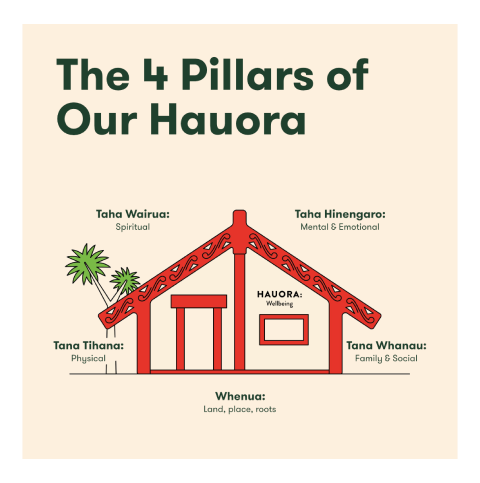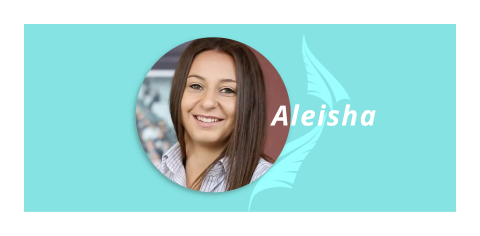Earlier in Ready, Set, Go!, we gave you some tips about how to be a successful online learner. Because keeping up your mental health during studies is so important, we want to remind you there is always help when you need it.
Extra support
If you need some extra support during your studies, you can access free counselling sessions. Australian Counselling Service (ACS) can deliver free online counselling sessions from anywhere in New Zealand.
ACS (Australian Counselling Service) provides counselling support for a range of concerns including stress, relationships, managing your studies and everyday worries. ACS is the clinical counselling division of the Australian Institute of Professional Counsellors (AIPC).
ACS's mission is to make quality mental health care services available to everyone.
For more information about how they can support you, go to: acscounselling.com.au
Book your online session now by registering at: acscounselling.com.au/registration/nzma
or emailing: info@acscounselling.com.au
Managing your screen time when you are studying online, and reducing eye strain is essential for maintaining eye health and overall well-being, especially when spending extended periods in front of digital screens (computers, phones, television etc).
Here are some helpful tips to help you manage your screen time:
- Follow the 20-20-20 rule
To reduce eye strain, follow the 20-20-20 rule. Every 20 minutes, take a 20-second break, and focus on something at least 6 meters away. This quick break gives your eyes a chance to relax and reduces the risk of developing digital eye strain. - Adjust your screen settings: make sure your screen settings are comfortable for your eyes
Brightness and Contrast: Adjust the brightness and contrast settings to suit your environment. Avoid screens that are too bright or too dim. - Think about your text size and font choice
Make things bigger! Increase the text size and choose easy-to-read fonts to reduce the need for squinting or hunching forward to read from your screen. - Use a blue light filter
Many devices offer blue light filters or night mode settings that reduce the amount of blue light emitted by the screen. Using these features, especially in the evening, can help reduce eye strain and improve sleep quality. - Look at your screen angle and position
Ensure your screen at eye level and ensure it is at a comfortable distance from your eyes (typically about 50-60 cm away). The top of the screen should be at or just below eye level. - Blink regularly
Blinking helps keep your eyes moist and reduces dryness and discomfort, especially during long periods of screen use. Consider using lubricating eye drops (artificial tears) to keep your eyes moist if they become dry and uncomfortable. - Adjust your room lighting
Ensure that your workspace is well-lit but avoid glare on the screen. Use indirect or adjustable lighting to reduce reflections on the screen.
Throughout your learning and your career, it's important to look after your health in all aspects of your life.
Te Whare Tapa Whā — The Four Pillars of Hauora
Te Whare Tapa Whā, a model to address our health and well-being (hauora), has been developed over the last 50 years into a framework that we can all use to ensure we’re giving ourselves a physical and mental checkup into all the parts of our lives that may need attention.

Image source: https://www.allright.org.nz/articles/spirituality-and-awe | ourhauora.nz/blog/te-whare-tapa-wha
You may like to use this time, before your programme starts, to get to know the Te Whare Tapa Whā model and tidy up your headspace, your physical space, your connection with family and community, your connection to your land and history, and your inner-dialogue or spiritual connections.
Success Story: Aleisha

“I was really uncertain as to what I was going to do with my life. I’d moved countries, and hadn’t met many friends and felt really unmotivated. As I love sport and anything to do with sport, a friend told me about NZIS, and I thought I should give it a shot. It was the best thing I have done...”
Reach out to community support
There are people you can talk to right now, click the links below to access support.
Talk to a trained counsellor about how you are feeling or ask any questions, call 0800 111 757 or free text 4202.
Depression.org.nz
If you or someone you know is experiencing depression, visit the website to find information on depression and advice. Hear shared personal stories from everyday people, celebs & musicians. You can text 24/7 and it’s free: 5626.
The Lowdown
To talk to someone for free about managing anxiety and stress at any time of night or day, call 0800 ANXIETY (0800 269 4389). They provide support, advice, and information 24/7.
Healthpoint | Anxiety Helpline
TAUTOKO is operated by trained and experienced social service practitioners who have undergone suicide prevention training. Talk to someone at 0508 828 865 (0508 TAUTOKO).
Lifeline | Suicide Crisis
For confidential support from highly trained staff and volunteers to help you deal with emotional, psychological distress, anxiety, depression and domestic violence. You can free call 0800 543 354 or text 4357 anytime.
Lifeline Aotearoa
If either you, or someone you know, is in immediate danger, please call emergency services immediately on 111.
111 calls are free. You can call this number on a mobile phone even if the phone is out of credit.
The operator will ask you which service you need and connect you to the right service.
If you can't decide if it's a real emergency and you're still worried, call 111 and ask us. We'll help you work out what to do.
NZ Police | Calling emergency 111
For men who are afraid they're going to harm a family member or know someone that may be harmed, you can call 0800 HEY BRO – 0800 439 276.
HEY BRO
For confidential telephone support for people in the LGBTQIA+ community, that is available evenings from 6pm–9pm, call 0800 688 5463 (OUTLINE).
OUTLine
We work towards creating social change by providing support, information, resources and advocacy for queer, gender diverse, takatāpui and intersex young people across Aotearoa.
Rainbow Youth
For a fully confidential, free, professional service with trained addiction counsellors, call 0800 787 797.
Alcohol and Drug Helpline
For support to help you quit smoking and stay quit. 24/7 specialised counselling and coaching to help you become a non-smoker. It’s free and confidential. Free call 0800 778 778 or text 8681.
Quitline | Me Mutu
